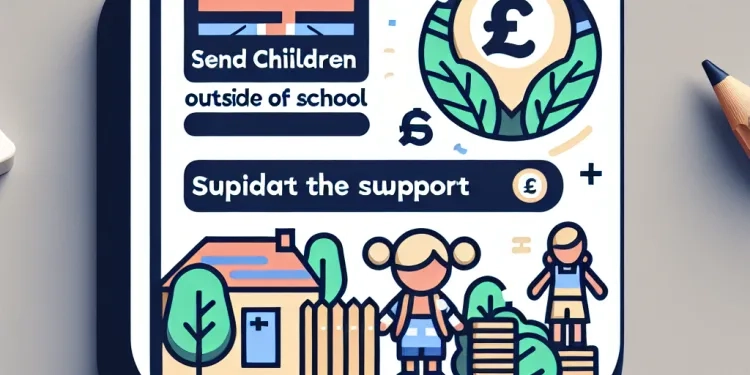
Find Help
More Items From Ergsy search
-

What support is available for SEND children in schools?
Relevance: 100%
-

What support is available outside of school for SEND children?
Relevance: 97%
-

What are SEND children?
Relevance: 96%
-

Who are SEND children?
Relevance: 96%
-

What role do teachers play in supporting SEND children?
Relevance: 95%
-

Do SEND children attend mainstream schools?
Relevance: 88%
-

How is progress measured for SEND children?
Relevance: 84%
-

Can SEND children access extracurricular activities?
Relevance: 84%
-

How can schools create an inclusive environment for SEND children?
Relevance: 77%
-

How do funding and resources affect SEND support?
Relevance: 76%
-

Are there specific laws governing SEND in schools?
Relevance: 66%
-

How are parents involved in the SEND process?
Relevance: 64%
-

What are some common misconceptions about SEND?
Relevance: 64%
-

What does SEND stand for?
Relevance: 62%
-

Can SEND status change over time?
Relevance: 62%
-

Who is responsible for assessing SEND needs?
Relevance: 62%
-

What are some common types of SEND?
Relevance: 57%
-

Can I send money to an inmate?
Relevance: 53%
-
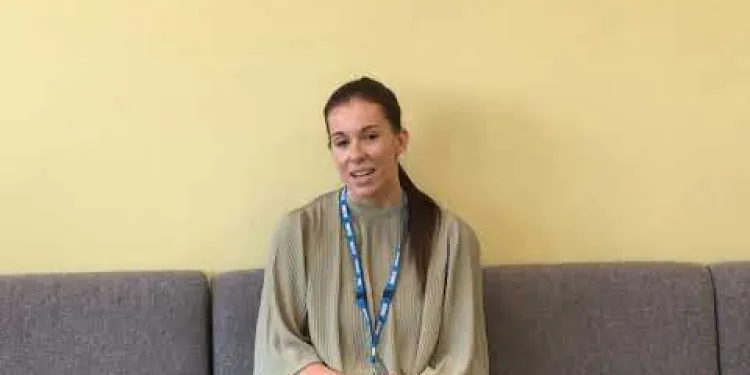
Practical strategies to support young children who stammer
Relevance: 49%
-

What items can I send to someone in prison?
Relevance: 48%
-

How do I send books or magazines?
Relevance: 48%
-

Why does my email appear to be sending spam?
Relevance: 46%
-

Do I need to send anything by post when filing online?
Relevance: 46%
-
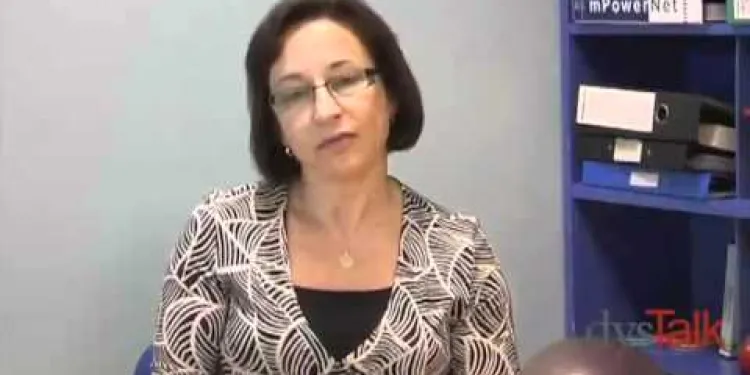
Dyspraxia Children: How to Help
Relevance: 44%
-

How can I identify if my child has SEND?
Relevance: 43%
-

How can parents advocate for their SEND child?
Relevance: 43%
-

Lupus in children | NHS
Relevance: 42%
-
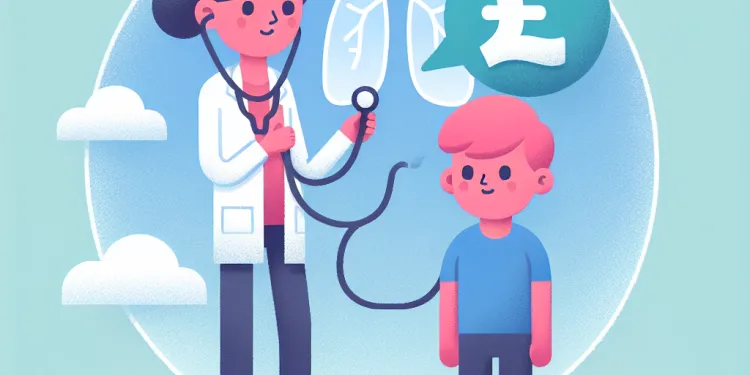
What is lupus in children?
Relevance: 41%
-
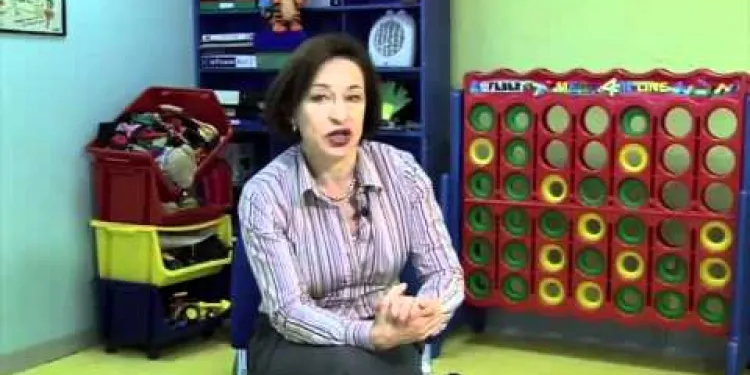
Children With Co-ordination Difficulties and Dyspraxia
Relevance: 40%
-

Understanding Mental Health in Children
Relevance: 39%
-

Why do some children stammer?
Relevance: 38%
-

Can children develop Crohn's disease?
Relevance: 38%
-

Are there specific mobility equipment for children?
Relevance: 37%
-

Do groomers target children with specific vulnerabilities?
Relevance: 37%
-

What causes lupus in children?
Relevance: 37%
-

Navigating Mental Health Services for Children and Adolescents
Relevance: 36%
-

Can children develop chronic fatigue syndrome?
Relevance: 36%
-

Is Baxdrostat suitable for children?
Relevance: 36%
-
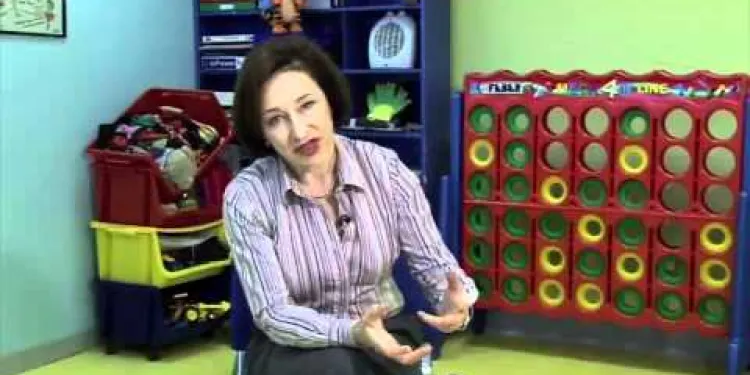
Helping Children With Co-ordination Difficulties
Relevance: 36%
-
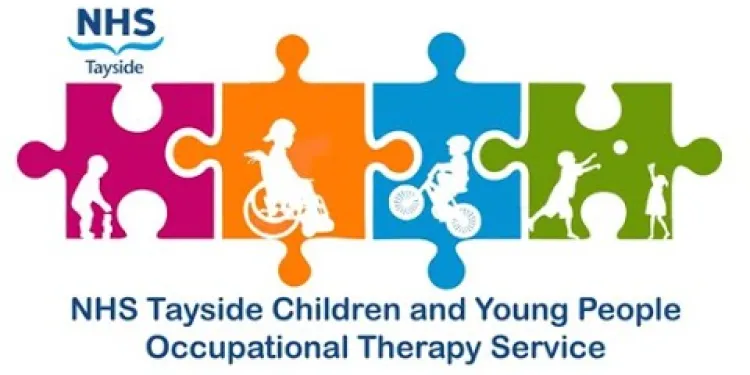
Developmental Coordination Disorder (DCD) for Children and Young People
Relevance: 36%
What Support is Available Outside of School for SEND Children?
In the UK, children with Special Educational Needs and Disabilities (SEND) benefit from a variety of support systems outside of the school environment. Utilizing these resources can greatly enhance their learning and personal development. Here's an overview of the key support mechanisms available.
Local Authority Services
Local authorities in the UK often provide services for SEND children, which include educational psychology assessments, therapy services, and portage services. These authorities can offer guidance and support through Individual Education Plans (IEPs) and Education, Health and Care Plans (EHCPs), which outline specific educational, health, and social care support. Parents can contact their local council for specific details regarding the available support.
Healthcare Services
Healthcare services play a crucial role in supporting SEND children. The National Health Service (NHS) offers access to specialists like speech and language therapists, occupational therapists, and physiotherapists. GPs can refer children to these services where necessary. Additionally, Child and Adolescent Mental Health Services (CAMHS) offer support for children facing mental health challenges. Learning about and accessing these services can significantly improve outcomes for SEND children.
Charities and Organizations
Numerous charities and organizations in the UK provide essential support for SEND children and their families. Organizations such as the National Autistic Society, Mencap, and Scope offer resources, advice, and advocacy for various conditions. They often run support groups, workshops, and events which are invaluable for networking and sharing experiences with other parents and carers in similar situations.
Respite Care
Respite care is a valuable resource for families of SEND children, offering temporary relief for parents and guardians. Through local councils and charities, families can arrange short breaks that provide professional care for children, allowing parents rest or time to focus on other responsibilities. Respite care comes in several forms, including overnight stays, day-time collections, or holiday schemes.
Parent Support Networks
Parents and carers of SEND children often find support through local parent networks and online forums. These platforms enable sharing of information and experiences, providing emotional support and practical advice. Parent Carer Forums are spread across the UK and work alongside health, education, and social services to represent the views of families with SEND children, contributing to better policy-making and service development.
Technology and Online Resources
In recent years, technology has become an important tool in supporting SEND children. Various apps and online resources are designed to help with learning and communication. Assistive technology, such as communication devices and software, can empower SEND children by enhancing their ability to learn and express themselves. Parents and carers can explore these resources to find suitable tools that can aid their child's development.
What Help is Available Outside of School for SEND Children?
In the UK, children with Special Educational Needs and Disabilities (SEND) can get help even when they are not at school. This help can make their learning and growing up easier. Let's look at the different ways they can get help.
Local Council Help
Local councils in the UK give help to SEND children. This help can be in things like checking how a child learns, giving therapy, and special home visits. Councils also help make plans called Individual Education Plans (IEPs) and Education, Health and Care Plans (EHCPs). These plans say what help the child needs. Parents can call their local council to find out more.
Healthcare Help
The NHS is important for helping SEND children. They can see specialists like speech therapists, people who help with physical movements, and more. Doctors can help you find these specialists. There is also help for children with mental health needs, called CAMHS. Knowing about these services can really help SEND children.
Charities and Groups
In the UK, many charities and groups help SEND children and their families. Groups like the National Autistic Society and Mencap give advice, run workshops, and have events. These are good places to meet other parents and share stories and tips.
Breaks for Parents
Breaks are very helpful for families with SEND children. Local councils and charities can help arrange short breaks where children get care, so parents can rest or do other things. This can be overnight stays, daytime care, or holiday programs.
Parent Groups
Parents of SEND children can join local groups or online forums. These places are good for sharing information, support, and tips. There are also Parent Carer Forums across the UK. They talk to health, education, and social services to help make things better for SEND families.
Technology and Online Help
Technology is now a big help for SEND children. There are apps and online tools to help with learning and talking. Things like communication devices can help SEND children learn and speak better. Parents can look for these tools to help their children grow.
Frequently Asked Questions
What is SEND?
SEND stands for Special Educational Needs and Disabilities. It refers to children who have learning difficulties or disabilities that make it harder for them to learn than most children of the same age.
What types of support are available for SEND children outside of school?
Support can include therapy services, support groups, respite care, specialized tutors, and educational programs.
What government services are available for SEND children?
Government services can include financial assistance, health services, and special programs designed to support the needs of SEND children.
How can I find local support groups for parents of SEND children?
Local councils, community centers, or online parenting forums are good places to find information on local support groups.
Are there financial support options for families with SEND children?
Yes, families can explore options such as Disability Living Allowance (DLA), Carer's Allowance, and other benefits depending on their location.
What is respite care and how can it help families of SEND children?
Respite care provides temporary relief for families by taking care of SEND children, allowing parents or caregivers a break from their duties.
Can SEND children receive therapy services outside of school?
Yes, many SEND children access therapies such as occupational, speech, or physical therapy through private practices or local health services.
Are there educational programs for SEND children outside of school?
Yes, there are specialized educational programs and extracurricular activities tailored to meet the needs of SEND children.
How can specialized tutoring benefit SEND children?
Specialized tutoring can offer personalized instruction that focuses on the child's strengths and addresses specific learning challenges.
Is online support available for SEND families?
Yes, there are numerous online communities, forums, and resources dedicated to supporting SEND families.
How do I apply for support services for my SEND child?
The application process varies, but generally involves contacting local health or education authorities and providing required documentation about the child's needs.
What role do charities play in supporting SEND children?
Charities often provide support services, funding, and advocacy for SEND children and their families.
Are there specific programs for children with autism outside of school?
Yes, there are various programs and services specifically designed to support children with autism, including therapy, social skills groups, and more.
How can local councils assist with support for SEND children?
Local councils can offer guidance on available services, assist with funding applications, and connect families with local resources.
What is the role of support workers in assisting SEND children?
Support workers provide personalized assistance and care to help SEND children with daily activities, educational goals, and social integration.
Can I find recreational activities for SEND children?
Yes, many communities offer recreational programs designed for SEND children, including camps, sports, and arts activities.
How can I involve my SEND child in social activities outside of school?
Look for local clubs, groups, or specialized programs that focus on inclusive social activities for children with special needs.
Do health services offer support for SEND children outside of school?
Yes, health services can provide various types of support, including assessments, treatments, and ongoing medical care tailored to SEND children.
How can technology aid in supporting SEND children?
Technology like apps and assistive devices can help in communication, learning, and engagement for SEND children.
What kind of advocacy services are available for SEND families?
Advocacy services can help families navigate the educational system, secure needed resources, and ensure the rights of SEND children are protected.
What is SEND?
SEND means Special Educational Needs and Disabilities.
Some children need extra help to learn.
This can be because they find it hard to see, hear, talk, or understand things.
These children might have SEND.
If you want to know more, you can ask a teacher or a grown-up.
Some things that can help are pictures, videos, and simple games.
SEND means Special Educational Needs and Disabilities. This is for children who have a harder time learning because of learning difficulties or disabilities. They might find it harder to learn than other children their age.
What help can SEND children get outside of school?
There are different ways to help children with Special Educational Needs and Disabilities (SEND) not just in school.
Here are some ways they can get support:
- Clubs and Groups: Some places have clubs and groups where SEND children can play and learn.
- Therapists: Some children see speech therapists, occupational therapists, or physiotherapists. They help with talking, moving, and learning new skills.
- Respite Care: Some families get help from people who look after the child for a short time. This is called respite care.
- Community Centers: Some community centers have special activities for SEND children to enjoy.
Parents and carers can talk to their local council or support groups to find out what is available nearby.
You can get help in different ways. You can talk with a therapist. You can join groups where people help each other. Sometimes, people can take a break with respite care. You can also have special teachers or join special classes to learn more.
What help can SEND children get from the government?
Children with Special Educational Needs and Disabilities (SEND) can get help from the government. These are some things that might help:
- Education Support: Extra help at school, like a teaching assistant.
- Health Support: Doctors and therapists to help stay healthy.
- Family Support: Someone who talks to families about any worries or questions.
- Special Equipment: Things like wheelchairs or special computers.
If you need more help understanding, you can use:
- Visual Aids: Pictures or videos to make things clearer.
- Simple Language: Use short sentences and easy words.
- Ask Questions: Talk to someone who can explain things.
Government services can offer money help, health care, and special programs to support SEND children.
How can I find help groups near me for parents of children with SEND?
Here is how you can find help groups for parents with SEND children:
- Ask at school. Talk to teachers or the school office. They might know about groups.
- Check online. Use the internet to search for groups near you. Try typing "SEND parents' support group" and your town or city.
- Visit the library. Libraries often have information about local groups and meetings.
- Talk to other parents. They might know about groups you can join.
Here are some tools that can help:
- Map apps. Use these to find places nearby.
- Social media. Find groups on Facebook or other sites for parents with SEND children.
If you need help reading or looking for information, ask a friend or family member to help you.
You can find information about support groups in your area. Try looking at:
- Local councils
- Community centers
- Online parenting websites
These places can help you find a group that is right for you.
You could also use special tools like:
- Reading apps that read text out loud
- Apps that explain hard words with simple pictures
These tools can make finding information easier for you.
Can families with children who have SEND get money help?
Yes, families with children who have Special Educational Needs and Disabilities (SEND) can get money help. Here are some ways to find support:
- Grants: Some groups give money to families who need it. You can ask about grants to help with costs.
- Benefits: There are money benefits for families with SEND children. You can find out if you can get these benefits.
- Local support: Your town or city might have extra help for SEND families. You can check with local groups or councils.
Tips to find more help:
- Ask professionals: Talk to teachers or doctors about money help you can get.
- Visit websites: There are websites that tell you about money support for SEND families.
- Contact charities: Some charities help SEND families with money advice.
Yes, families can look at getting help like Disability Living Allowance (DLA), Carer's Allowance, and more help, depending on where they live.
Helpful tools can include:
- Talking with a social worker to learn more about these options.
- Using websites that explain benefits in simple words.
- Asking for help from people who work with disabilities.
What is respite care and how can it help families of SEND children?
Respite care is a short break for families who look after children with SEND (Special Educational Needs and Disabilities).
It gives families some time to rest and recharge. This helps them better care for their child.
Supportive tools or techniques can be:
- Asking friends or family to help watch the child.
- Finding local respite care services or groups.
- Using apps or websites for support tips.
Respite care helps families for a short time. It looks after children who need extra help. This gives parents or caregivers a rest from their work.
Here are some tips to make it easier:
- Use pictures to show what respite care does.
- Read this text out loud with someone who can help explain it.
- Take breaks while reading if it feels like too much.
Can children with special needs get therapy outside of school?
Yes, children with special needs can get help outside of school too. This is called therapy. Therapy helps children learn and feel better.
Here are some ways to find therapy:
- Ask your doctor.
- Talk to other parents.
- Look online for local services.
Using pictures or videos can also help children understand better.
Yes, many children with special needs can get help from therapy. This can be therapy for speaking, moving, or doing everyday things. They can go to private places or local health services to get this help.
Can SEND children learn outside of school?
Yes, there are ways for SEND children to learn outside school. These are helpful:
- Tutors: People who teach one-on-one.
- Learning Groups: Small classes for special help.
- Online Programs: Learning on a computer at home.
- Workshops: Fun classes to learn new things.
These can help SEND children learn in a way that works best for them.
Yes, some special school programs and fun activities are made for children with special educational needs and disabilities (SEND).
How can special teaching help SEND children?
Special teaching can help SEND children in many ways:
- Learn better: Teachers can use simple words and clear pictures.
- Go at their own speed: Children can take as long as they need to learn.
- Feel good about learning: Children get help and feel proud when they understand new things.
- Use fun tools: Tools like games or videos can make learning fun.
Special teaching helps each child in a way that works best for them.
Special tutors can give lessons that are just right for the child. They help with what the child is good at and work on things they find hard.
Can SEND families get help online?
Yes, families with children who have special educational needs and disabilities (SEND) can find help online.
They can use simple tools:
- Email: Write and send questions or ask for more help.
- Video Calls: Talk to experts face-to-face on your phone or computer.
- Websites: Find tips and advice on pages made for SEND families.
- Online Chats: Text in real-time to get answers quickly.
Yes, there are many online groups and websites that help families with SEND (Special Educational Needs and Disabilities).
How can I get help for my child with special needs?
The way to apply is different in each place. Usually, you need to talk to local health or education offices. You will have to give them some papers about what the child needs.
How do charities help children with SEND?
Some children need extra help because they have SEND. This means Special Educational Needs and Disabilities.
Charities are groups that want to help people. They can help children with SEND in different ways:
- Providing Support: They give advice and information to families and schools.
- Offering Activities: They arrange fun things to do where children can learn and make friends.
- Funding Services: They help pay for special tools or programs that children might need.
- Advocating for Needs: They speak up for children to make sure they get the help they need.
If you want to understand more or need help, you can:
- Ask a grown-up to read with you.
- Use a computer or tablet to listen to the text being read aloud.
Charities help children with SEND and their families. They give support, money, and speak up for them.
Are there special programs for children with autism outside of school?
Yes, there are special programs for children with autism that they can do outside of school. These programs help children learn and have fun.
Some programs might include:
- Music classes
- Art activities
- Sports teams
- Social groups
It can be helpful to talk to a teacher or a specialist who knows about autism to find the right program. Parents can also look online or ask other parents for ideas.
Yes, there are different programs and services to help children with autism. These can include therapy and social skills groups.
How can councils help children with SEND?
Local councils can help children with SEND (Special Educational Needs and Disabilities) in many ways. Here are some ways they can help:
1. Extra Help at School: Councils can give schools money to buy special tools or hire helpers for children.
2. Special Classes: They can make sure there are special classes or teachers to help children learn better.
3. Advice for Parents: Parents of SEND children can talk to the council to get advice and ideas on how best to support their child.
4. Transport: Councils can help with transport to get children to school safely and easily.
5. Activities and Clubs: Councils can offer fun activities and clubs where children can play and learn new things.
If you think your child may need extra help, you can talk to your local council. They are there to help you and your child.
Your local council can help you. They can tell you what services you can use, help you apply for money, and connect you with nearby support.
What do support workers do to help SEND children?
Support workers have an important job. They help children with SEND (Special Educational Needs and Disabilities).
Here are some ways they help:
- They make sure the children understand their lessons.
- They help children with their schoolwork.
- They help children talk to other kids and teachers.
- They keep children safe and happy at school.
If you want to learn more, you can ask a teacher or look at easy books and videos that explain about support workers.
Support workers help children who have special educational needs and disabilities (SEND). They give care and help these children with things they do every day. Support workers also help with school work and making friends.
Can I find fun activities for children with special needs?
Yes, you can find fun things for children with special needs.
Here are some tips to help:
- Look online for local groups and clubs.
- Ask other parents or teachers for ideas.
- Visit community centers and libraries for classes or events.
- Check social media for local support groups.
Using pictures and videos can help make activities easier to understand.
Yes, lots of places have fun programs for children with special needs. They have camps, sports, and arts activities for these children.
How can I help my child with SEND join in fun activities after school?
Your child can have fun and make friends outside school. Here is how you can help:
- Local Clubs: Check local clubs for kids. They might have art, music, or sports activities.
- Play Dates: Invite friends over to play. Take turns visiting their homes too.
- Community Events: Go to fairs, markets, or shows. It's fun to see new things together.
- Family Support Groups: Join groups with other families. You can meet new people and share ideas.
- Sports Teams: Look for teams where everyone can join. It's a great way to play and learn.
If your child is shy, try these tips:
- Start Small: Begin with short visits to new places.
- Talk About It: Explain what will happen. It helps them feel safe.
- Stay Positive: Encourage them and praise their efforts.
- Use Visual Aids: Show pictures or videos of activities to prepare them.
Find clubs, groups, or programs near you. They help kids with special needs make friends and have fun together.
Do health services help SEND children when they are not in school?
Health services do help SEND children outside school. SEND means Special Educational Needs and Disabilities.
These services can give advice to parents and carers. They can offer therapy, like helping a child with talking or moving.
Parents can ask a doctor or school for more information about the help available.
Tools like picture cards and simple language can also assist in understanding.
Yes, health services can help in many ways. They can check a child's health, give treatments, and offer medical care just for SEND children.
How can technology help children with SEND?
Technology can help children with SEND (Special Educational Needs and Disabilities) learn and play. It can make things easier and more fun for them.
Here are some ways technology can help:
- Computers and tablets can show pictures and sounds that help children understand better.
- There are apps and games that make learning fun and help children practice their skills.
- Speech tools can help children who find it hard to talk. These tools can say words out loud.
- Special keyboards and mice can make it easier for children to use a computer.
- Listening to stories with apps can help children who find reading hard.
Parents and teachers can help children choose the right technology for their needs. They can also make sure children use technology safely.
Tools like apps and special devices can help children with special educational needs and disabilities (SEND) to talk, learn, and have fun.
What help can SEND families get?
Advocacy services help families understand the school's system, get the help they need, and make sure the rights of SEND children are protected.
Useful Links
This website offers general information and is not a substitute for professional advice.
Always seek guidance from qualified professionals.
If you have any medical concerns or need urgent help, contact a healthcare professional or emergency services immediately.
Some of this content was generated with AI assistance. We’ve done our best to keep it accurate, helpful, and human-friendly.
- Ergsy carfully checks the information in the videos we provide here.
- Videos shown by Youtube after a video has completed, have NOT been reviewed by ERGSY.
- To view, click the arrow in centre of video.
- Most of the videos you find here will have subtitles and/or closed captions available.
- You may need to turn these on, and choose your preferred language.
- Go to the video you'd like to watch.
- If closed captions (CC) are available, settings will be visible on the bottom right of the video player.
- To turn on Captions, click settings .
- To turn off Captions, click settings again.
More Items From Ergsy search
-

What support is available for SEND children in schools?
Relevance: 100%
-

What support is available outside of school for SEND children?
Relevance: 97%
-

What are SEND children?
Relevance: 96%
-

Who are SEND children?
Relevance: 96%
-

What role do teachers play in supporting SEND children?
Relevance: 95%
-

Do SEND children attend mainstream schools?
Relevance: 88%
-

How is progress measured for SEND children?
Relevance: 84%
-

Can SEND children access extracurricular activities?
Relevance: 84%
-

How can schools create an inclusive environment for SEND children?
Relevance: 77%
-

How do funding and resources affect SEND support?
Relevance: 76%
-

Are there specific laws governing SEND in schools?
Relevance: 66%
-

How are parents involved in the SEND process?
Relevance: 64%
-

What are some common misconceptions about SEND?
Relevance: 64%
-

What does SEND stand for?
Relevance: 62%
-

Can SEND status change over time?
Relevance: 62%
-

Who is responsible for assessing SEND needs?
Relevance: 62%
-

What are some common types of SEND?
Relevance: 57%
-

Can I send money to an inmate?
Relevance: 53%
-

Practical strategies to support young children who stammer
Relevance: 49%
-

What items can I send to someone in prison?
Relevance: 48%
-

How do I send books or magazines?
Relevance: 48%
-

Why does my email appear to be sending spam?
Relevance: 46%
-

Do I need to send anything by post when filing online?
Relevance: 46%
-

Dyspraxia Children: How to Help
Relevance: 44%
-

How can I identify if my child has SEND?
Relevance: 43%
-

How can parents advocate for their SEND child?
Relevance: 43%
-

Lupus in children | NHS
Relevance: 42%
-

What is lupus in children?
Relevance: 41%
-

Children With Co-ordination Difficulties and Dyspraxia
Relevance: 40%
-

Understanding Mental Health in Children
Relevance: 39%
-

Why do some children stammer?
Relevance: 38%
-

Can children develop Crohn's disease?
Relevance: 38%
-

Are there specific mobility equipment for children?
Relevance: 37%
-

Do groomers target children with specific vulnerabilities?
Relevance: 37%
-

What causes lupus in children?
Relevance: 37%
-

Navigating Mental Health Services for Children and Adolescents
Relevance: 36%
-

Can children develop chronic fatigue syndrome?
Relevance: 36%
-

Is Baxdrostat suitable for children?
Relevance: 36%
-

Helping Children With Co-ordination Difficulties
Relevance: 36%
-

Developmental Coordination Disorder (DCD) for Children and Young People
Relevance: 36%


